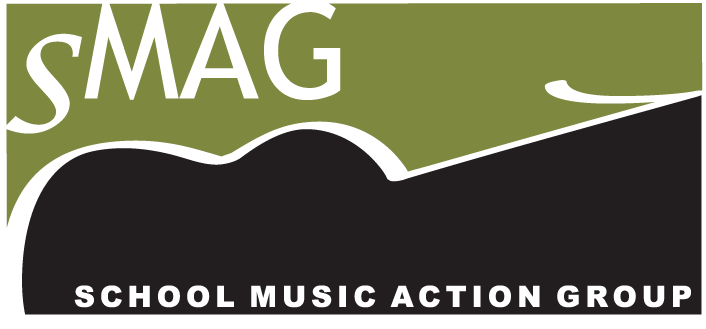Update: Parliamentary Inquiry into the Extent,
Benefits and Potential of Music Education in Victorian Schools
Thank you so much
to those who have contributed to the Parliamentary Inquiry into the Extent,
Benefits and Potential of Music Education in Victorian Schools. Two hundred and
forty submissions were received and can be viewed on the Victorian Parliament,
Committees, Education and Training Music education Website http://www.parliament.vic.gov.au/etc/article/1963 under the TAB 'Hearings and Transcripts'. A Hansard report will also be placed on this site in due course.
This Review is,
without doubt, a response from the Education Minister following sMAGs ongoing
lobbying to the department over a period of time. Our lobbying actually
commenced when sMAG was formed as a result of the Victorian Music Workshop in
2007. It has taken a long time for action and we are indeed very grateful to be
afforded the opportunity by the inquiry to
address the Terms of Reference. The Terms of Reference not only measures the
benefits of music education to the child, school and community, but also
addresses the issues of provision, pre-service training, administrative
structure, musical pathways, and inequities in provision. We believe that without this inquiry, there
can be little action in addressing the recommendations from the National Review
of Music Education, and the Victorian Workshop Report, and consequently the
diminishing state of music education in Victorian schools.
240 submissions
have been received from a large range of organizations which include sMAG, Music Council of Australia, AMUSE, from
schools, parents, teachers, universities, external providers, and the Victorian
Aboriginal Education Association. Collectively they present a detailed picture
of school music education in Victoria at this point in time and alert us to the
fact that, apart from a small number of excellent programs which are mostly in
independent schools, music education provision and quality continues to
decline. Research studies and statistics put the figure of 23 percent of
Government schools compared to 88 per cent of independent schools that offer an
effective music education. The provision of music in Primary schools is of
significant concern, as it the pre-service music training for Primary Teachers.
Impressive were
the responses to the Terms of References from the 240 submission relating
to the benefits of a music education to individual students, society, and to
academic performance. These are
excellent advocacy statements and will be of value to parents and teachers
wishing to improve the provision and quality of music programs in schools, or
to encourage parents to invest in a music education for their children. After
reading these statements, it is hard to believe that music education is indeed
being side-lined by schools, and governments.
They include extraordinary stories of how the school music program has changed the
lives of students, school attendance, school culture, and student’s personal
confidence, self-esteem, mental health, and academic achievement.
sMAG was invited to appear
before the Parliamentary Council at the first hearing on March 27 and presented
evidence along with the DEECD, VCAA, AMUSE, The Song Room, Educational
Transformations, the Music Council of Australia, Australian College of
Educators and the Victorian Music Teachers association.
The crux of the sMAG submission
was the need to bridge the gap between the inequalities in the provision and
quality of music programs in government schools compared to independent
schools, with the need to place a music specialist teacher in every school.
Discussions focused firstly on what was happening at primary level, including
country Victoria, and on the need to reform university pre-service training for
primary teachers. At secondary level an
issue was raised in relation to what appears to be a drift away from music
as a core subject to an elective subject in years 7 & 8, the distribution
of instrumental music teachers to government schools, and the contentious issue
of VIT registration for instrumental music teachers. The need to increase investment in music
education, and the need for transformational reform in the above areas was
discussed.
What is revealed
in the submission is that we currently have a major problem with the status of
music education in schools with up to three quarters of Australian school
children missing out. Not to mention an ongoing diminishing of school music
education provision. ACARA appears to be
leaving the issue of the provision of music and the arts provision to the
States and schools so this inquiry has come at a critical time in Victoria. We
have one opportunity to convince our state government that music education is
fundamental to the development of the child and is a human right. We must keep
working to turn the tide on music education. Pease keep up your support. We
still have a way to go.
Thank you again to
those who made a response and a special thank you to the writing and inquiry
team: Associate Professor Robin Stevens, Professor Gary McPherson, Carl
Stevens, Catherine Lyons, Carl Williams, Kevin Kelley, and Jennifer Heinrick.
Dr Anne Lierse
Chair of sMAG
